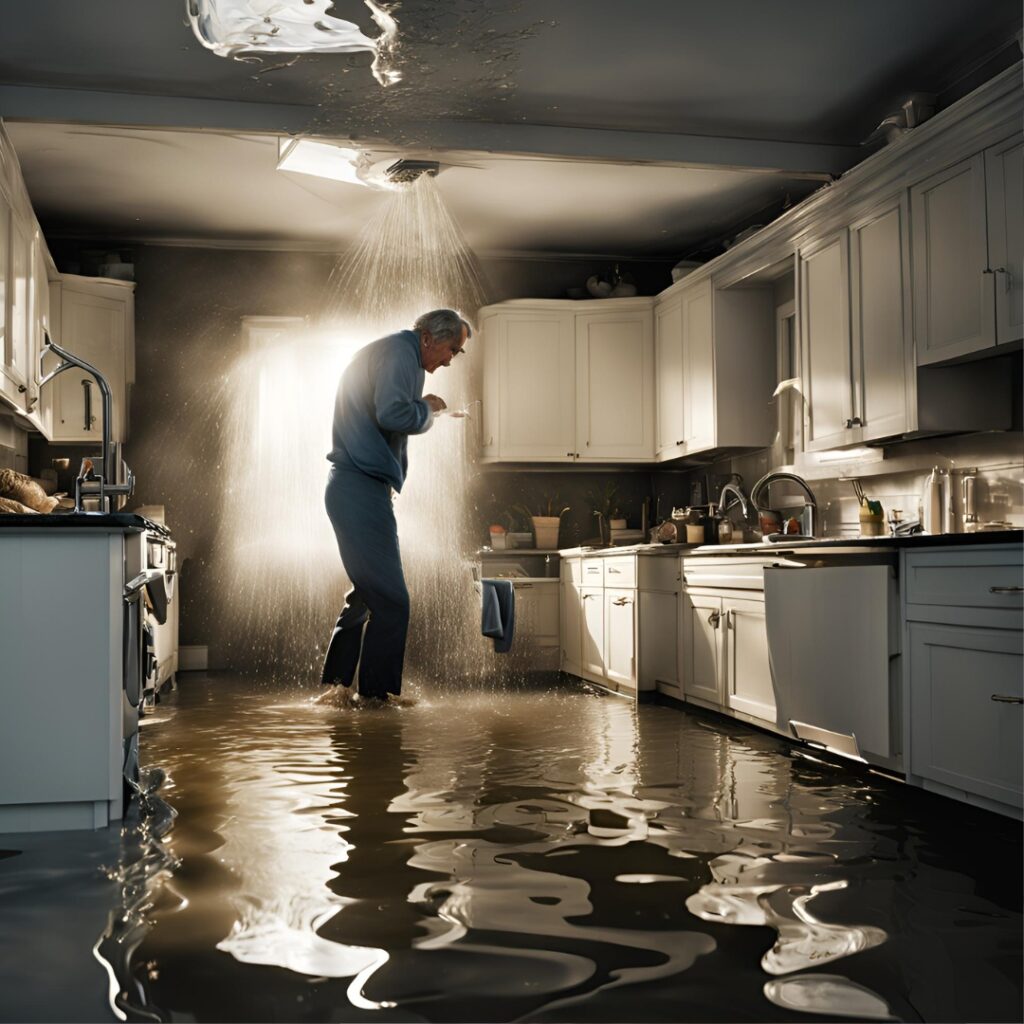Emergency Plumbing: When Every Second Counts


When a plumbing emergency strikes, time is your most valuable asset. Whether it’s a burst pipe, a sewage backup, or a water heater failure, the first few moments after the issue occurs can make the difference between a minor inconvenience and a major, costly disaster. Knowing what steps to take, who to call, and how to act quickly can save you both time and money—and in some cases, prevent irreversible damage to your home. In this blog, we’ll dive deep into the essentials of emergency plumbing, covering everything from what constitutes an emergency to how to handle common plumbing crises until the professionals arrive.
What is Considered a Plumbing Emergency?
Before diving into how to manage a plumbing emergency, it’s important to understand what qualifies as one. Not all plumbing problems require immediate attention. A slow drain or minor leaky faucet can typically wait for a scheduled service. However, certain issues demand swift action to prevent further damage to your property and your wallet.
Here’s a quick list of plumbing emergencies:
- Burst or Leaking Pipes: A burst pipe can lead to flooding, extensive water damage, and potential structural problems if not addressed immediately.
- Sewage Backups: When wastewater backs up into your home, it’s not only unpleasant but also a health hazard.
- Overflowing Toilets: An overflowing toilet, especially when accompanied by sewage backup, is a serious health and sanitation issue.
- Water Heater Failure: A lack of hot water is inconvenient, but if the water heater is leaking or producing strange smells, it may be a sign of a more serious issue.
- Major Clogs: Severe clogs that stop water from draining completely can lead to water backing up into sinks, tubs, or toilets, causing flooding or water damage.
If you’re experiencing any of these issues, it’s time to call in a professional plumber.
The Importance of Quick Action in Plumbing Emergencies
In emergency plumbing situations, every second counts. Delaying the necessary repairs or failing to act quickly can lead to significant damage to your home, which translates to higher repair costs, potential health risks, and possible insurance claims. Let’s explore why acting fast is so critical:
- Water Damage: Water from a burst pipe or overflowing toilet can damage drywall, floors, insulation, and your personal belongings. The longer the water sits, the greater the potential for structural damage, mold growth, and mildew.
- Health Risks: In cases like sewer backups or overflowing toilets, the water is often contaminated with harmful bacteria, viruses, and other pathogens. Exposure to this type of water can result in serious illness.
- Cost Escalation: Minor leaks or clogs that seem insignificant can quickly escalate into major issues if left unaddressed. The longer a problem goes unnoticed, the more expensive the repairs will be.
- Water Supply Disruption: In some cases, like burst pipes or water heater failures, you may find yourself without water at all. This can disrupt your daily life, and the longer the issue goes unresolved, the more inconvenient it becomes.
Top 5 Common Plumbing Emergencies and How to Handle Them
1. Burst Pipes
A burst pipe is one of the most severe plumbing emergencies. If you notice sudden drops in water pressure, a gurgling sound, or damp spots on your walls or floors, you may be facing a burst pipe.
How to Handle It:
- Turn off the water supply immediately. Locate your main shutoff valve and cut off the water supply to prevent further flooding.
- Call a plumber: Contact an emergency plumber right away to avoid extensive damage.
- Drain the faucets: Open all the faucets in your home to relieve pressure in the pipes.
2. Sewer Backup
Sewage backups are not only unpleasant but also dangerous. They occur when your home’s main sewer line is blocked, causing waste and water to back up into the home.
How to Handle It:
- Stop using water: Do not flush toilets or run water in the sinks to avoid exacerbating the problem.
- Isolate the affected area: Avoid contact with sewage water, which can cause serious health risks.
- Call a plumber: Sewer line issues require professional expertise to resolve, as the cause of the backup may be deep within the system.
3. Clogged Drains
Severe drain clogs can prevent water from draining, leading to potential flooding. If water begins to pool in your bathtub or sinks, you may be dealing with a serious clog.
How to Handle It:
- Use a plunger: For minor clogs, a plunger can be effective in dislodging blockages.
- Try a drain snake: A drain snake can be helpful in breaking up more stubborn blockages deep within the pipes.
- Call a plumber: If the clog persists or is causing water backup, it’s time to call a professional to clear the drain.
4. Water Heater Failure
Water heater problems can range from a lack of hot water to more serious issues like leaks or strange odors. If you notice any of these signs, it’s crucial to act fast.
How to Handle It:
- Turn off the power supply: For electric water heaters, switch off the power at the breaker box. For gas water heaters, turn off the gas supply.
- Check for leaks: If there’s water pooling around your heater, it may need immediate repair or replacement.
- Call a plumber: A qualified plumber can inspect the heater and determine whether it needs repairs or full replacement.
5. Leaking Toilets
A leaking toilet may seem like a minor issue, but it can quickly escalate into a significant water waste problem, leading to higher water bills and potential water damage.
How to Handle It:
- Turn off the water supply: Locate the water valve behind the toilet and turn it off to stop the flow of water.
- Check the flapper: A malfunctioning flapper valve may be the source of the leak.
- Call a plumber: If the leak persists, a professional plumber can repair or replace the faulty components.
How to Prevent Plumbing Emergencies
While plumbing issues can happen unexpectedly, many emergencies can be prevented with a little bit of foresight and regular maintenance. Here are some key tips to help you avoid the most common plumbing disasters:
- Regular Inspections: Schedule annual or bi-annual plumbing inspections to catch potential problems before they escalate.
- Monitor Water Pressure: Excessive water pressure can strain your pipes. Install a water pressure regulator to protect your plumbing system.
- Know Your Shutoff Valve Locations: Familiarize yourself with the locations of your main water shutoff valve and individual shutoff valves for appliances like the dishwasher, washing machine, and water heater.
- Use Drain Screens: Prevent clogs by using drain screens to catch hair, soap, and debris before they enter your plumbing.
- Maintain Your Water Heater: Flush your water heater every 6 months to remove sediment buildup that can affect its efficiency.
Why Hiring a Professional Emergency Plumber is Crucial
While DIY solutions can sometimes fix minor issues, plumbing emergencies require the expertise of a professional. A licensed plumber can quickly diagnose the problem, make safe repairs, and ensure that the issue is fully resolved. Here’s why professional help is essential:
- Expert Diagnosis: Plumbers are trained to quickly identify the source of the problem, saving you time and frustration.
- Proper Equipment: Professional plumbers have access to specialized tools and equipment that may not be available to homeowners.
- Safety: Plumbing systems can be dangerous if mishandled. A licensed plumber knows how to safely work with water, gas, and sewage systems.
- Long-term Solutions: Professionals don’t just fix the immediate issue; they ensure that the problem won’t reoccur, providing lasting solutions and peace of mind.
Frequently Asked Questions
If the issue is causing immediate water damage, affecting your health (like a sewer backup), or disrupting your water supply (like a burst pipe or water heater failure), it’s a plumbing emergency.
The time it takes depends on the severity of the problem. For instance, a minor clog may take less than an hour, while a burst pipe or major sewer backup could take several hours or longer to resolve.
It's not recommended to attempt DIY fixes for plumbing emergencies, especially if you lack the necessary tools or expertise. A professional plumber will ensure the issue is safely and effectively resolved.
Plumbing emergencies can be stressful, but with the right knowledge and preparation, you can minimize damage and make sure you get help when you need it most. Remember to act fast, call a trusted professional plumber, and always stay vigilant about maintaining your plumbing system to avoid unexpected crises.
Is your home prepared for a plumbing emergency? Don’t wait until it’s too late—schedule an inspection today and ensure your plumbing system is in top condition. Contact us now for fast, reliable service!
